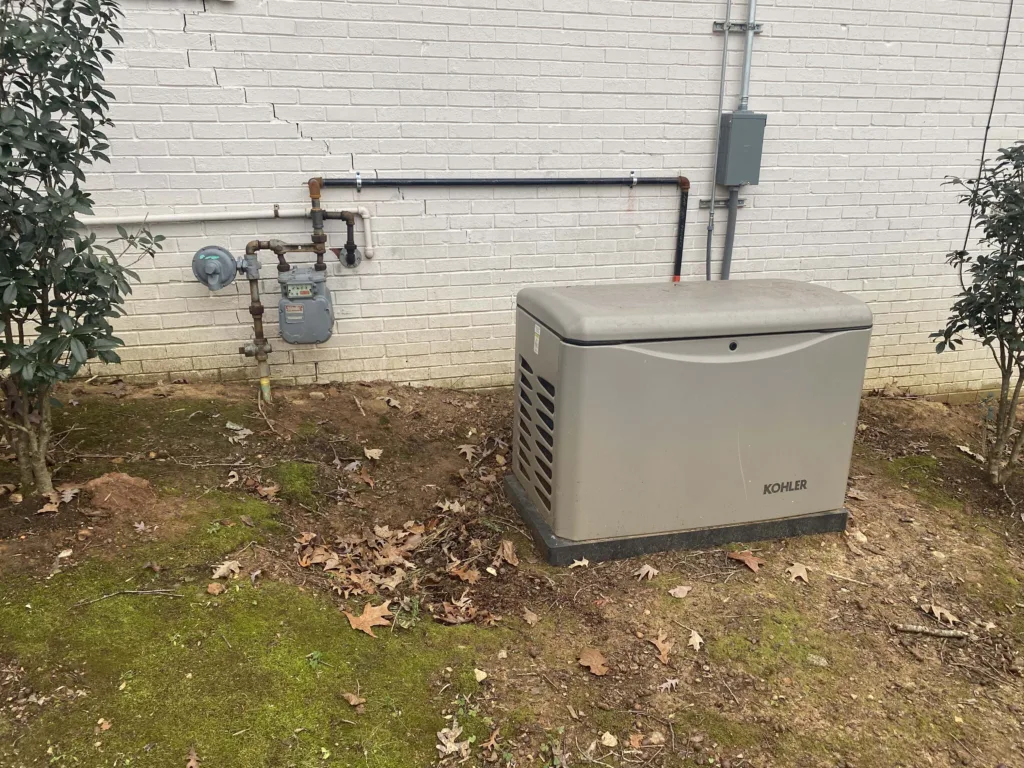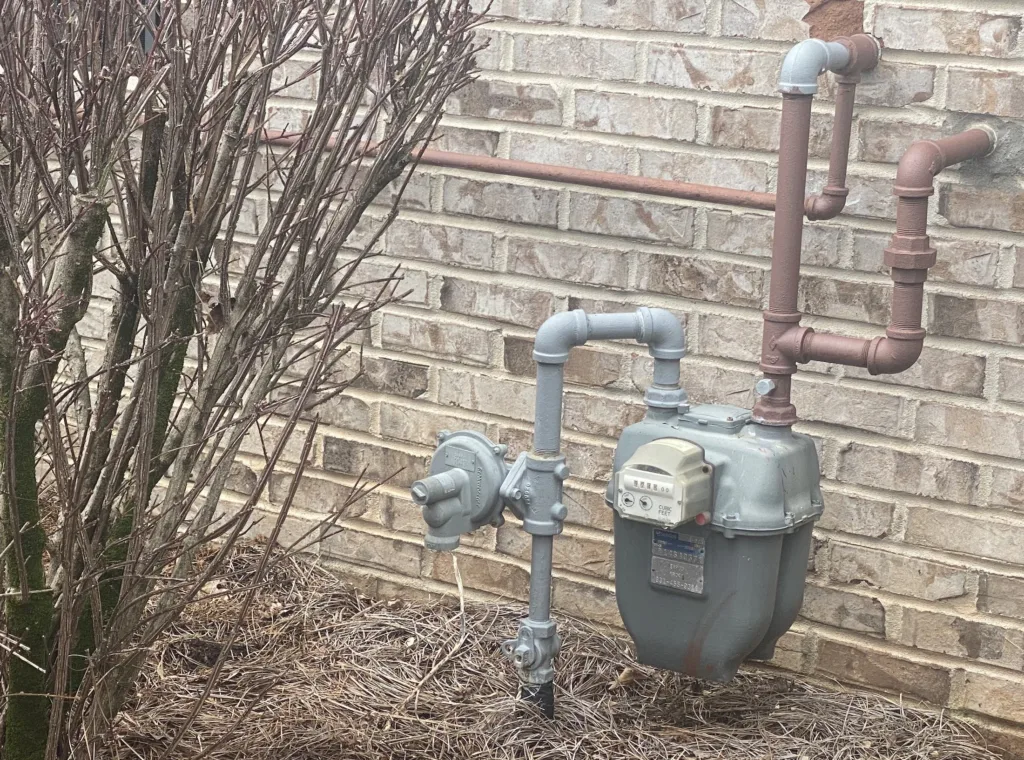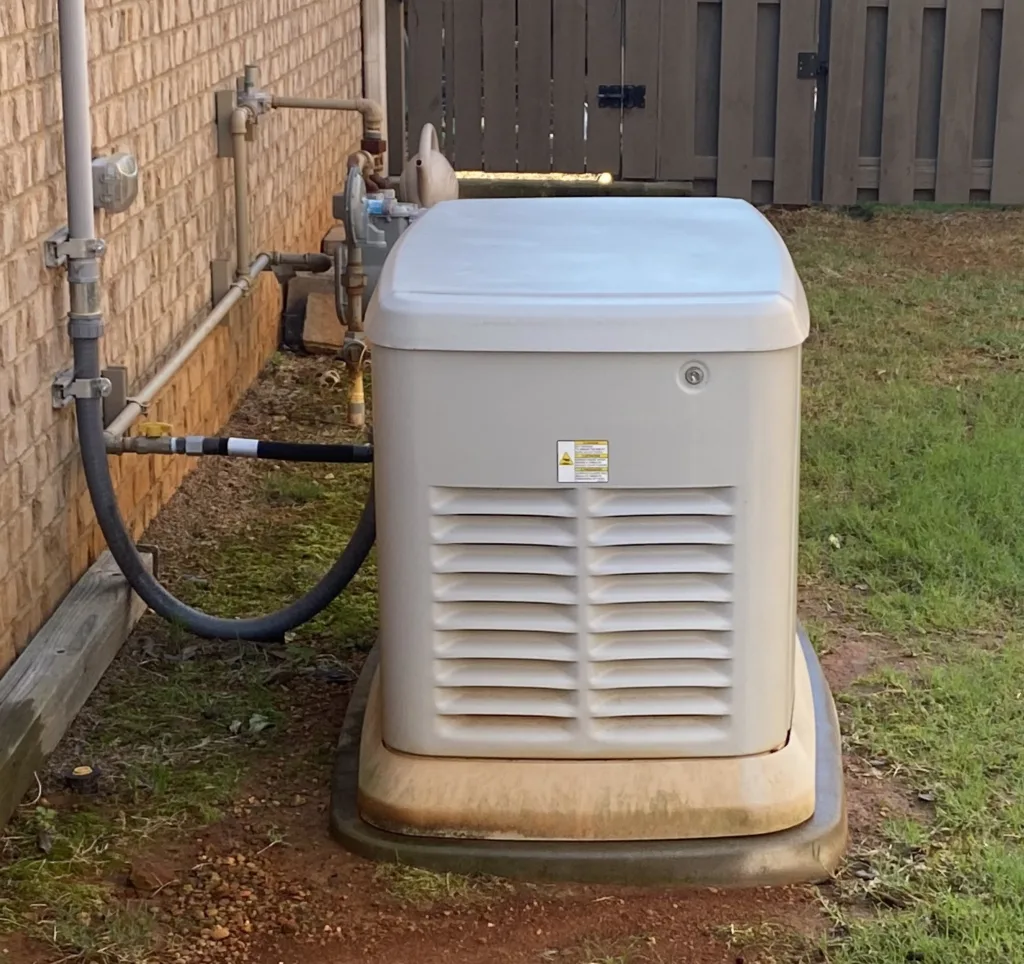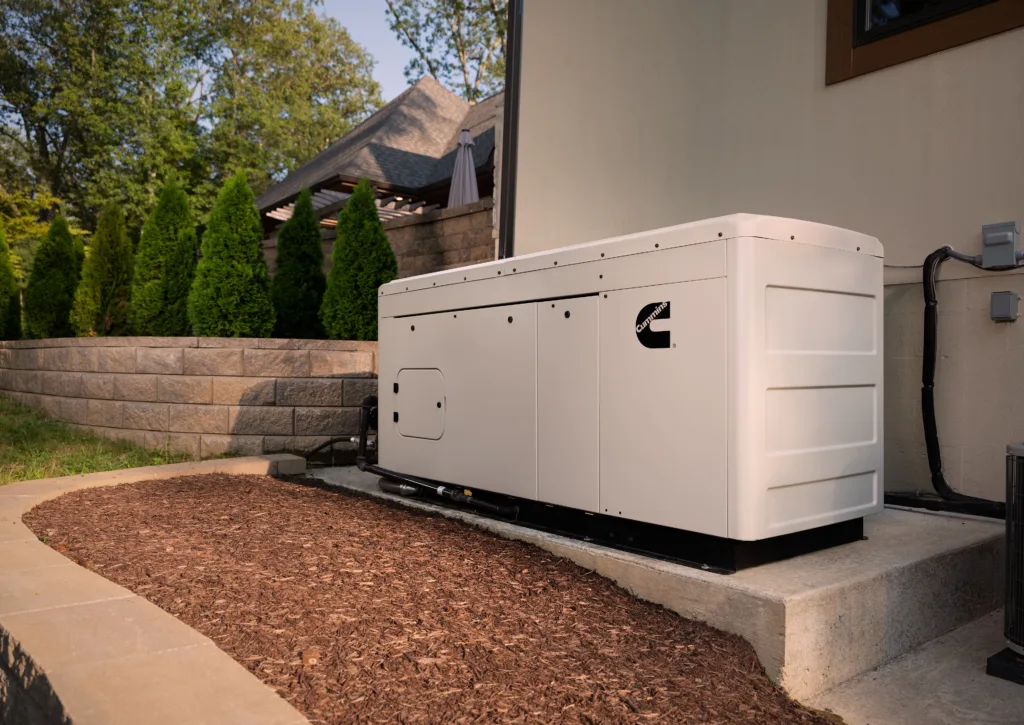Your natural gas meter might be too small for your generator. Here’s why it’s a problem…
If you’re installing a natural gas-fueled generator to keep the power on during a power outage, obviously you need a suitable supply of natural gas to keep it going.

When designing a generator system, customers often ask if natural gas is reliable; that is, what if it goes out too? The short answer is, natural gas service to your home can experience outages also. Sometimes this occurs during super-cold weather when a utility company can’t keep up with demand and has to turn off the gas to some customers. Sometimes a gas outage is caused by unrelated accidents and fires, or accidental underground damage caused by digging.
Since natural gas is supplied by pipeline from the utility company directly to your home, there’s always the risk of a gas outage right when you need to run your generator due to a power outage! But this happens so rarely that it usually isn’t considered likely enough to plan for.
What DOES need to be planned for is natural gas problems caused by poor generator installation. If you hire a typical gas contractor or plumber to connect your generator, chances are good you will not have the proper flow, volume and pressure of natural gas to the generator.
One of the main reasons for this is undersized natural gas meters. If your gas meter is undersized for the demand it needs to carry, it will cause a drop in pressure that can cause your gas appliances (and generator) to malfunction. The generator may be the first appliance to suffer because it requires a very specific inlet gas pressure to start, and plenty of gas to support the electrical demand of the house. The more electricity you need to produce, the harder your generator needs to work and the more natural gas it will consume.

Most homeowners don’t know anything about the natural gas meter supplied by the gas utility or what effect it can have on your home.
The most common type of natural gas meter in Alabama and Southern Middle Tennessee is called an “AC-250” meter. The “250” in the name relates loosely to the number of cubic feet per hour that the meter can handle. With natural gas, 250 cubic feet per hour equates to about 250,000 Btu per hour. Appliances are sized in Btu/hour. A Btu (British Thermal Unit) describes an amount of energy. How many Btu consumed per hour gives you a rough measure of the quantity of gas you’ll need to meet the appliances’ demand.
Typical gas meters can allow 250,000 Btu/hour to flow through the meter before the pressure of the gas flowing is negatively impacted. If you try to get 700,000 Btu/hour out of an AC-250 meter, it will cause a reduction in gas pressure which can interfere with appliances.
Recently, we had a nice conversation with the gas meter shop at North Alabama Gas District (website – https://www.nagd.com). They stated that although an AC-250 meter has a nominal rating of 250 cubic feet per hour (250,000 Btu/hour), in reality it will handle up to 565,000 Btu/hour without substantial pressure drop. This means that in many cases, your home may be served just fine by an AC-250 meter.
Here are some common household appliances and their Btu ratings:
- Gas Furnace – 125,000
- Water Heater (Tank) – 30,000
- Water Heater (Tankless) – 199,000
- Gas Logs – 30,000
- Gas Range w/Oven – 125,000
- Gas Dryer – 30,000
- Pool Heater – 199,000
- Generator (Kohler 20RCA) – 254,000
Consider a house with an AC-250 meter that already has a gas furnace, tankless water heater, gas range and gas logs. If all those appliances are used at one time, you could consume 479,000 Btu/hour of natural gas — more than the nameplate rating of your gas meter, but under the real limit of 565,000.
Now suppose you add a Kohler 20RCA generator (254,000 Btu/hour). Your total demand could approach 733,000 Btu/hour during periods of heavy usage of gas appliances, such as winter. In this situation, your generator installer should contact your gas utility and arrange for a larger meter to be installed!
Your generator company (or gas contractor) may need to meet the gas utility personnel on-site when the meter is changed so that the piping can be adjusted or re-piped to accommodate the larger meter. A safety check and relight of any gas appliances with a pilot light may be required.
This is what sets Heritage Generator apart from other installers. Many other companies do not want to go through the trouble of contacting the utility and coordinating the installation of a bigger gas meter because it takes time and effort. Most contractors don’t think it’s a problem because the generator will run fine when it is first tested. It’s only during winter when an actual power outage strikes that the generator fails to start or stops running due to poor gas flow.
If you’d like your generator installed properly, call Heritage Generator at 256-808-3344. We’d love to serve you! Heritage Generator is an Alabama licensed master gas and electrical contractor.


